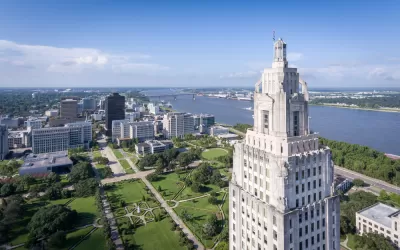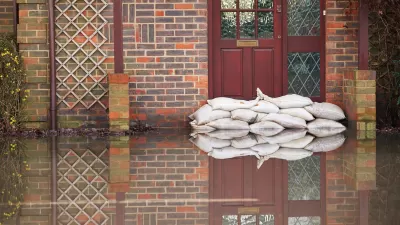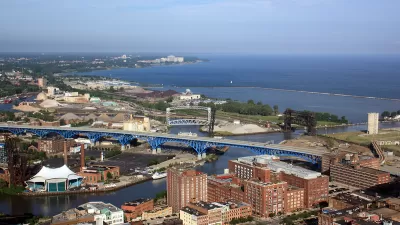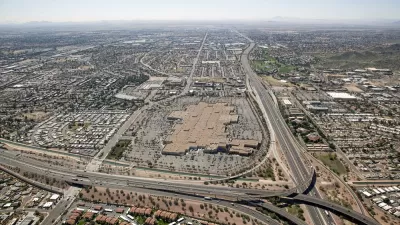A wealthy portion of Baton Rouge will split off and incorporate its own city in what proponents say is a bid for better schools and reduced crime, but critics say it will gut Baton Rouge’s tax base and result in a wealthy ‘white enclave.’

In what’s being called a landmark ruling, the Louisiana Supreme Court has authorized the incorporation of a new city called St. George in the suburbs of Baton Rouge, Louisiana. The New York Times reports that a 60-square-mile area in the southwest of East Baton Rouge Parish — and the 86,000 residents who live there — will be split off from the blended government that oversees both Baton Rouge and the broader parish and to form an independent city, complete with its own mayor, city council, and public services. The decision is making big waves throughout the region and beyond.
Rick Rojas of the NYT reports that plans started more than 10 years ago when the area’s predominantly wealthy, white residents tried and failed to start a school district spurred by concern that East Baton Rouge Parish schools were underperforming. That turned into an effort to collect enough signatures to form their own city, which they believe will solve their ongoing frustrations around not only schools but also crime, infrastructure, and allocation of resources under the existing city-parish government.
That proposal made it onto the ballot in 2019 and won the vote, which “spurred an immediate legal challenge as parish officials feared the consequences of losing $48 million in annual tax revenues. They argued that the new city could not operate with a balanced budget and the proposed budget for St. George was inaccurate,” NYT’s Rojas writes. The Louisiana Supreme Court overturned lower court rulings, finding that St. George could operate within its estimated tax revenues and provide public services within a reasonable period of time.
The decision has been met with disappointment, skepticism, and anger both locally and from across the country. Apart from what are sure to be massive logistical challenges of the separation and creation of St. George, “[critics] argue that the division may exacerbate racial and economic disparities within the region, calling it the creation of a ‘White enclave’ and claiming it would damage Baton Rouge’s predominantly Black communities and its school district,” writes Washington Times staff.
Land use regulations have a long history as tools for segregation and discrimination against Black people, indigenous people, and people of color in the United States. This decision could have huge implications for the people of Baton Rouge, the region, and beyond if communities elsewhere decide to take similar action. Whether or not St. George’s annexation of primarily affluent white areas is racially motivated — the group behind the new city’s formation says it’s not — its effects on the predominantly Black and low-income communities from which they’ve separated will remain the same. The legacy of similar land use decisions and policies that supported white flight throughout this country’s history are visible in the racial and economic disparities that exist in cities and towns to this day.
FULL STORY: Louisiana Will Get a New City After a Yearslong Court Battle

Planetizen Federal Action Tracker
A weekly monitor of how Trump’s orders and actions are impacting planners and planning in America.

San Francisco's School District Spent $105M To Build Affordable Housing for Teachers — And That's Just the Beginning
SFUSD joins a growing list of school districts using their land holdings to address housing affordability challenges faced by their own employees.

The Tiny, Adorable $7,000 Car Turning Japan Onto EVs
The single seat Mibot charges from a regular plug as quickly as an iPad, and is about half the price of an average EV.

As Trump Phases Out FEMA, Is It Time to Flee the Floodplains?
With less federal funding available for disaster relief efforts, the need to relocate at-risk communities is more urgent than ever.

With Protected Lanes, 460% More People Commute by Bike
For those needing more ammo, more data proving what we already knew is here.

In More Metros Than You’d Think, Suburbs are Now More Expensive Than the City
If you're moving to the burbs to save on square footage, data shows you should think again.
Urban Design for Planners 1: Software Tools
This six-course series explores essential urban design concepts using open source software and equips planners with the tools they need to participate fully in the urban design process.
Planning for Universal Design
Learn the tools for implementing Universal Design in planning regulations.
Smith Gee Studio
City of Charlotte
City of Camden Redevelopment Agency
City of Astoria
Transportation Research & Education Center (TREC) at Portland State University
US High Speed Rail Association
City of Camden Redevelopment Agency
Municipality of Princeton (NJ)





























